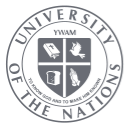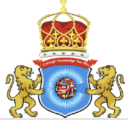Introduction to University of the Nations:
Introduction and Overview: University of the Nations is a global Christian university with 650 teaching sites in 160 countries and courses in about 100 languages. It is affiliated with the Youth With A Mission (YWAM) organization and aims to develop men and women in spiritual, cultural, intellectual and professional aspects.
History and Founding Time: Founded in Kailua-Kona, Hawaii in 1978 by Howard Malmstadt and YWAM founder Loren Cunningham, it was originally called Pacific & Asia Christian University (PACU). In 1989, with the establishment of other teaching sites around the world, the school was renamed University of the Nations.
School Strength: Although not accredited by any recognized accreditation agency, the school claims that the credits of some of its courses are recognized by other higher education institutions, and some universities also accept its degree graduates to pursue advanced degrees (usually master's programs). The school has a faculty from different countries, cultures, denominations and age groups, which can provide students with a diverse learning experience.
Institutional nature: It is a private, unaccredited Christian university.
Educational philosophy: Based on biblical principles, it is committed to training students to become Christians who "make disciples of all nations", emphasizing character development as an integral part of the curriculum, and is taught through lectures, learning tasks, interpersonal relationships, and daily life. Focus on enabling students to learn to think from a biblical perspective and spiritual discernment, and apply biblical truth to all areas of life.
Key disciplines and departments: The school has seven colleges, namely the College of Arts and Sports, the College of Christian Ministry, the College of Communication, the College of Counseling and Health, the College of Education, the College of Humanities and International Studies, and the College of Science and Technology, offering associate, bachelor, and master's degrees. In addition, there are nine interdisciplinary centers, such as the Center for Community Development and Justice, the Center for Discipleship Training Schools, etc. No key laboratory related content is mentioned.
Ranking: Since the school has not been accredited by an authoritative organization, there is no clear international authoritative ranking.
Cost: No specific cost information for the school has been found yet.
Campus environment: Students live, study and work together on campus. This concept of community learning reflects the New Testament model of Christians living, learning and working towards a common goal. Students and faculty come from many countries and cultural backgrounds, forming a diverse family. The school adopts a modular education system, where students only study one 12-unit course per quarter, and the course usually has internships or cross-cultural field work.
-

University of the Nations
-

Commonwealth Vocational University
-

Mesoamerican University
-

Istmo University
-

Mariano Galvez University of Guatemala
-

Regional University of Guatemala
-

Galileo University
-

Francisco Marroquín University
-

Rafael Landívar University
-

University of the Valley of Guatemala
-

University of San Carlos of Guatemala
-

Technological Institute of Tlaxcala Plateau
-

Golfo University
-

Technological University of South Sonora
-

Technological University of Huejotzingo
-

Tizimín Institute of Technology
-

Chilpancingo Institute of Technology
